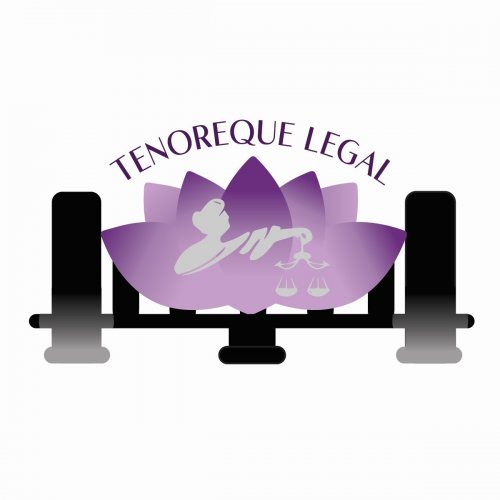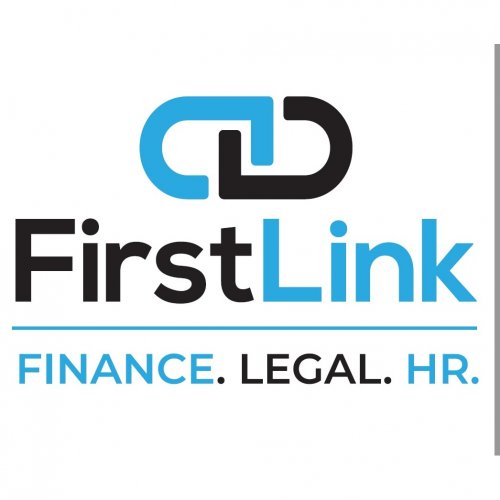Best FDA Law Lawyers in Port of Spain
Share your needs with us, get contacted by law firms.
Free. Takes 2 min.
List of the best lawyers in Port of Spain, Trinidad and Tobago
About FDA Law in Port of Spain, Trinidad and Tobago
FDA Law, commonly referred to as food and drug administration law, relates to the regulation of foods, pharmaceuticals, medical devices, cosmetics, and related products. While Trinidad and Tobago does not have an organization called the FDA like the United States, its regulatory framework is overseen by the Chemistry, Food & Drugs Division (CFDD) of the Ministry of Health. In Port of Spain and throughout the country, FDA Law ensures that food, drugs, and related products available to the public are safe, effective, and labeled correctly. Legal requirements exist for product registration, importation, manufacturing, distribution, advertising, and recalls.
Why You May Need a Lawyer
Navigating FDA Law in Trinidad and Tobago can be complex, especially for businesses and individuals involved in the manufacture, importation, distribution, or sale of food, drugs, cosmetics, or medical devices. You may need a lawyer if you are facing the following situations:
- Importing food, drugs, cosmetics, or medical devices into Trinidad and Tobago and require permits or registration.
- Starting a new business that manufactures or distributes regulated products and need to understand compliance requirements.
- Facing enforcement actions, such as product seizures, recalls, or penalties from the Chemistry, Food & Drugs Division.
- Wanting to challenge a decision by the regulatory authorities.
- Needing to ensure your labeling, advertising, or packaging complies with local laws.
- Suspecting a competitor is misrepresenting or adulterating products or violating regulations.
- Encountering challenges related to product registration delays or refusals.
- Involved in a dispute related to safety, efficacy, or side effects of food or drug products.
Local Laws Overview
Key legislation governing FDA-related matters in Port of Spain, Trinidad and Tobago includes the Food and Drugs Act, the Food and Drugs Regulations, and relevant provisions from the Pharmacy Board Act and the Pesticides and Toxic Chemicals Act. The Chemistry, Food & Drugs Division acts as the primary regulatory body. Here are some important aspects:
- Product Registration: Most pharmaceuticals, medical devices, foods, and cosmetics must be registered before sale or importation.
- Labelling: Strict requirements exist for labeling, including ingredients, manufacturer information, expiration dates, and health warnings.
- Import Process: Importers must obtain permits and ensure all products are registered and meet standards.
- Manufacturing Compliance: Local manufacturing facilities are subject to inspection, and must comply with good manufacturing practices and standards.
- Advertising Restrictions: Advertising for food, drugs, medical devices, and cosmetics is subject to specific rules to prevent misleading claims.
- Recalls and Enforcement: The authorities have the power to order recalls, seize products, and prosecute violations.
Frequently Asked Questions
What is the main regulatory agency for food and drug law in Trinidad and Tobago?
The Chemistry, Food & Drugs Division (CFDD) of the Ministry of Health is the primary agency that regulates food, drugs, cosmetics, and medical devices.
Do I need to register my product before selling it in Port of Spain?
Yes, most food, drug, cosmetic, and medical device products require registration with the CFDD before they can be legally sold or imported.
What documents are needed to import pharmaceuticals?
Typically, you need a product registration certificate, import permit, manufacturer's documentation, and evidence of conformity with safety and quality standards.
Are there restrictions on advertising health products?
Yes, all advertising must comply with regulations set by the CFDD to avoid misleading or unsubstantiated claims.
What should I do if a product I purchased is unsafe or defective?
Report the issue to the Chemistry, Food & Drugs Division. You may also have grounds for a legal claim, and a lawyer can guide your next steps.
How long does it take to register a product?
Registration timelines vary and depend on product type, completeness of documentation, and CFDD workload. Early preparation and legal advice can help speed up the process.
Who is responsible for product compliance, the importer or manufacturer?
Both can be held liable, but the local importer or distributor often bears primary responsibility according to local law.
Can the authorities recall products or shut down businesses?
Yes, if there is a breach of regulations or a risk to public health, the CFDD can order a recall, confiscate products, or even close facilities.
What are the penalties for non-compliance?
Penalties may include fines, imprisonment, product seizures, and business closures, depending on the severity of the infraction.
Do I need a lawyer to handle FDA law issues?
While not mandatory, a lawyer with experience in FDA law can help ensure compliance, navigate complex regulatory requirements, and defend your interests in disputes.
Additional Resources
If you need more information or assistance, consider these key resources:
- Chemistry, Food & Drugs Division (CFDD), Ministry of Health: The primary regulatory body for FDA matters in Trinidad and Tobago.
- Trinidad and Tobago Manufacturers Association (TTMA): Offers guidance and resources for businesses in the food and pharmaceutical sector.
- Chamber of Industry and Commerce: Support for importers, exporters, and businesses navigating regulatory requirements.
- Law Association of Trinidad and Tobago: Directory of qualified attorneys who can advise on FDA Law.
- Consumer Affairs Division: Resources and complaints handling for consumers dealing with unsafe or mislabeled products.
Next Steps
If you believe you need assistance with an issue related to FDA law in Port of Spain or anywhere in Trinidad and Tobago, consider the following steps:
- Gather all relevant documents and correspondence related to your case or query.
- Identify the specific area of concern - product registration, importation, labeling, recalls, advertising, etc.
- Contact the Chemistry, Food & Drugs Division for guidance on regulatory steps.
- Consult with a qualified attorney who specializes in FDA or regulatory law in Trinidad and Tobago, especially if enforcement actions are involved or if your business could be at risk.
- Stay informed on updates to local regulations, as these can change and impact your obligations.
- If you are a business, consider proactive compliance audits to minimize risk.
Taking timely action and seeking expert advice can help protect your interests and ensure you comply with relevant FDA laws and regulations in Port of Spain, Trinidad and Tobago.
Lawzana helps you find the best lawyers and law firms in Port of Spain through a curated and pre-screened list of qualified legal professionals. Our platform offers rankings and detailed profiles of attorneys and law firms, allowing you to compare based on practice areas, including FDA Law, experience, and client feedback.
Each profile includes a description of the firm's areas of practice, client reviews, team members and partners, year of establishment, spoken languages, office locations, contact information, social media presence, and any published articles or resources. Most firms on our platform speak English and are experienced in both local and international legal matters.
Get a quote from top-rated law firms in Port of Spain, Trinidad and Tobago — quickly, securely, and without unnecessary hassle.
Disclaimer:
The information provided on this page is for general informational purposes only and does not constitute legal advice. While we strive to ensure the accuracy and relevance of the content, legal information may change over time, and interpretations of the law can vary. You should always consult with a qualified legal professional for advice specific to your situation.
We disclaim all liability for actions taken or not taken based on the content of this page. If you believe any information is incorrect or outdated, please contact us, and we will review and update it where appropriate.















